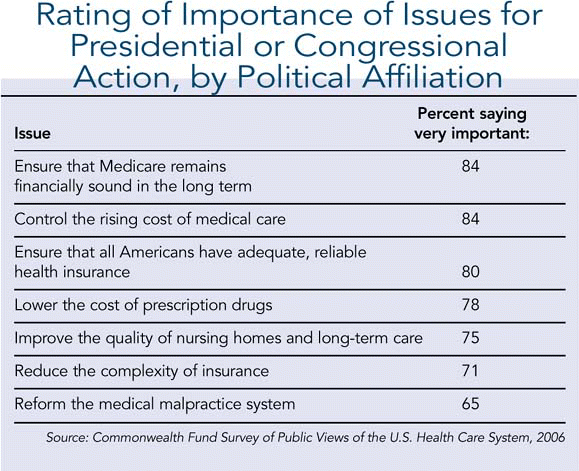If we are not careful as physicians, we are going to leave a lot of cynics behind, and that would be a disaster, warns Dr. Johns. As physicians, we need to reset our priorities, focus on what it means to be a physician professional, and leave a legacy of leadership, integrity, character, and honor for tomorrow’s physicians to emulate.
Explore This Issue
November 2006Adds Mr. Teal, Mike Johns is always pushing physicians-and all of us-to think in terms of ‘why not?’ instead of ‘why?’
As the paradigm shifts, it will create a new direction in terms of the kinds of health professionals we will need and how and when we will train them, said Dr. Johns. Presently, there is a need for specialists, but over the next 20 years there may be a shortage of general physicians due to the expanding population and aging baby boomers, thereby creating a role for advanced practice nurses and physician extenders at the primary care level.
Based upon changing physician attitudes and work/lifestyle demands, my colleagues and I at the Association of American Medical Colleges projected last year that we would need to raise the number of medical students by 15 percent. Now we are looking at 30 percent as to what is really needed.
I am concerned that America is not producing enough graduates in science and technology, so that we can continue to be the world leader in this area, said Dr. Johns. We are going to have to spend the dollars to enhance our science and technology education, support and educate more students in these academic areas in K-12 and beyond, as well as work faster, smarter and harder if we want to keep our leadership position.
As health care continues to evolve, so does medical education, adds Dr. Johns. The medical school curriculum of today is more about preparing medical students to go forward with further training. We are creating what I call ‘stem cell physicians’; they all learn the same core of medical knowledge and practice, but ultimately differentiate into their own specialties, work patterns, and place in society.
Dr. Johns’ own children exemplify this thought. His son, Michael, also an otolaryngologist, established and directs the Emory Voice Center, helping speakers, singers, and others with vocal problems. Daughter Christina is a pediatrician who devotes much of her time to medical communications and broadcasting for some of the major networks.
Who will be responsible for transforming health and healing in our time? asks Dr. Johns. I don’t have a crystal ball to know the answer, but hopefully, all of us in the health care profession will play a role in this new era of predictive medicine. Our science and our world need good and thoughtful leadership. I invite and challenge my fellow physicians to be those leaders.

Dr. Johns and Otolaryngology
Dr. Johns graduated with distinction from the University of Michigan Medical School, and remained at Michigan for his internship and residency. He then joined the Medical Corps of the US Army and was assistant chief of the Otolaryngology Service at Walter Reed Army Medical Center. Following his army service, he joined the Department of Otolaryngology and Maxillofacial Surgery at the University of Virginia Medical Center, where he rose to the rank of Professor. In 1984, Dr. Johns was recruited to Johns Hopkins as Professor and Chair of Otolaryngology-Head and Neck Surgery, a department he built into one of the country’s largest and most prestigious. As Associate Dean for Clinical Practice, he reorganized the faculty practice plan and planned and developed the Johns Hopkins Outpatient Center. As a cancer surgeon of head and neck tumors he was internationally recognized for his work and his studies of treatment outcomes.
Leave a Reply